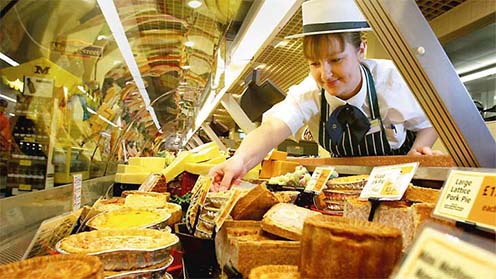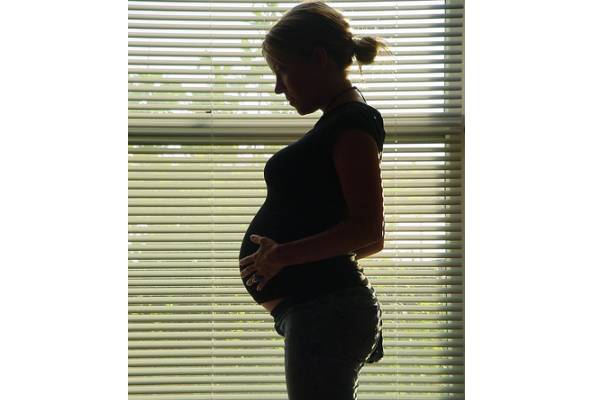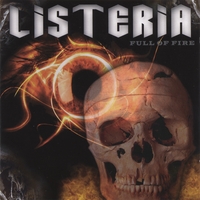The grocery store is my laboratory — or at least part of it.
I often find myself loitering around the deli counter, watching people order pound after pound of sliced roast beef or shaved turkey breast.
 At one point a few years ago, I began chatting with one of the customers and politely commented that was a lot of deli meat she was ordering (really, there was a polite context).
At one point a few years ago, I began chatting with one of the customers and politely commented that was a lot of deli meat she was ordering (really, there was a polite context).
She replied it was sandwiches for the kids for the next two weeks.
Uugh.
Yesterday, the Liverpool Daily Post reported U.K. environmental health officers from 42 local authorities purchased 1,127 samples of sliced-at-the-counter cooked meats from food retailers including butchers, delicatessens, market stalls and supermarkets.
Laboratory tests found that 15 per cent of the samples were contaminated with low numbers of listeria on the day of purchase, while 7.3 per cent were contaminated with Listeria monocytogenes, the more serious form of listeria.
Although these were within European Food Safety Standards, when the contaminated samples were tested again after storage for 48 hours in a refrigerator, the L. monocytogenes in some of the contaminated samples had multiplied to unsafe levels.
The tests were carried out at a fridge temperature of six degrees centigrade. However, many domestic fridges are warmer than this, allowing L. monocytogenes to grow faster.
Hugh Lamont, communications manager for the Health Protection Agency North West, said
“We are anxious to ensure that we do not create a scare around freshly sliced cooked meats. We are not saying that people should not buy or eat them, but rather that they should follow ‘use by’ advice where it is given – and consume the products within 48 hours where it is not. We are also reminding food retailers of the advice they should give to customers.”
.jpg) The U.S. Centers for Disease Control recommendations for persons at high risk from listeria, such as pregnant women and persons with weakened immune systems, includes:
The U.S. Centers for Disease Control recommendations for persons at high risk from listeria, such as pregnant women and persons with weakened immune systems, includes:
-Do not eat hot dogs, luncheon meats, or deli meats, unless they are reheated until steaming hot
-Avoid getting fluid from hot dog packages on other foods, utensils, and food preparation surfaces, and wash hands after handling hot dogs, luncheon meats, and deli meats
-Do not eat soft cheeses such as feta, Brie, and Camembert, blue-veined cheeses, or Mexican-style cheeses such as queso blanco, queso fresco, and Panela, unless they have labels that clearly state they are made from pastuerized milk
-Do not eat refrigerated pâtés or meat spreads. Canned or shelf-stable pâtés and meat spreads may be eaten
-Do not eat refrigerated smoked seafood, unless it is contained in a cooked dish, such as a casserole. Refrigerated smoked seafood, such as salmon, trout, whitefish, cod, tuna or mackerel, is most often labeled as "nova-style," "lox," "kippered," "smoked," or "jerky." The fish is found in the refrigerator section or sold at deli counters of grocery stores and delicatessens. Canned or shelf-stable smoked seafood may be eaten.
The USDA risk assessment for listeria is ready-to-eat foods is available at
http://www.fsis.usda.gov/OPPDE/rdad/FRPubs/97-013F/ListeriaReport.pdf
and one from the World Health Organization is at
http://www.who.int/foodsafety/publications/micro/mra_listeria/en/index.html
.jpg) My ex mother-in-law once told me that if I had a baby I would have to get rid of my cats. I replied, “No cats, no baby.” My step-brother’s cats mysteriously disappeared once his firstborn was old enough to crawl. Doug and I have two cats and two dogs and no intention of giving them up or sending them outdoors once the baby arrives. Sure, there’s dog hair all over the floors and it’s going to be a hassle learning to manage new and old responsibilities – and much more difficult to keep pet hair out of the baby’s mouth once she’s mobile. But we committed to the pets long ago and have been working on teaching them their order in the home.
My ex mother-in-law once told me that if I had a baby I would have to get rid of my cats. I replied, “No cats, no baby.” My step-brother’s cats mysteriously disappeared once his firstborn was old enough to crawl. Doug and I have two cats and two dogs and no intention of giving them up or sending them outdoors once the baby arrives. Sure, there’s dog hair all over the floors and it’s going to be a hassle learning to manage new and old responsibilities – and much more difficult to keep pet hair out of the baby’s mouth once she’s mobile. But we committed to the pets long ago and have been working on teaching them their order in the home. 

 Yesterday I enjoyed an aperitif at
Yesterday I enjoyed an aperitif at .jpg)
.jpg) From cooking ”a hamburger to the center” (page 21) to “well-cooked” (page 12), the document is short on specifics, and absolutely wrong when speaking to an audience I particularly care about these days – pregnant women.
From cooking ”a hamburger to the center” (page 21) to “well-cooked” (page 12), the document is short on specifics, and absolutely wrong when speaking to an audience I particularly care about these days – pregnant women.(2).jpg)
 Dr. Emily Oken of Harvard Medical School in Boston and her colleagues reported in the May 15 issue of the
Dr. Emily Oken of Harvard Medical School in Boston and her colleagues reported in the May 15 issue of the  At one point a few years ago, I began chatting with one of the customers and politely commented that was a lot of deli meat she was ordering (really, there was a polite context).
At one point a few years ago, I began chatting with one of the customers and politely commented that was a lot of deli meat she was ordering (really, there was a polite context)..jpg) The
The  Celebrity blog TMZ.com reported that several sources in the know — including one pregnant OB/GYN — tell TMZ that there are "definite" health risks associated with soft-serve ice cream for expectant moms because of Listeria bacteria. Softie machines can be studded with bacteria that can cause all kinds of issues for newborns — in fact, Down Under, it’s pretty much forbidden for preggo women.
Celebrity blog TMZ.com reported that several sources in the know — including one pregnant OB/GYN — tell TMZ that there are "definite" health risks associated with soft-serve ice cream for expectant moms because of Listeria bacteria. Softie machines can be studded with bacteria that can cause all kinds of issues for newborns — in fact, Down Under, it’s pretty much forbidden for preggo women..jpg) The story says that two of the pregnant women miscarried after they contracted the infection. In a third case, the pregnant mom delivered early, but she and her baby are doing well. The probable case involves another pregnant woman who also lost her baby. All four had consumed soft cheeses from a variety of sources.
The story says that two of the pregnant women miscarried after they contracted the infection. In a third case, the pregnant mom delivered early, but she and her baby are doing well. The probable case involves another pregnant woman who also lost her baby. All four had consumed soft cheeses from a variety of sources..jpg) "Therefore this is a serious breach of the rules which the managing director of the hospital must take responsibility for."
"Therefore this is a serious breach of the rules which the managing director of the hospital must take responsibility for." In response to a recent
In response to a recent  Researchers report in the latest Australian and New Zealand Journal of Health that in a survey of 586 women attending antenatal clinics in one private and two major public hospitals in New South Wales between April and November 2006,
Researchers report in the latest Australian and New Zealand Journal of Health that in a survey of 586 women attending antenatal clinics in one private and two major public hospitals in New South Wales between April and November 2006,